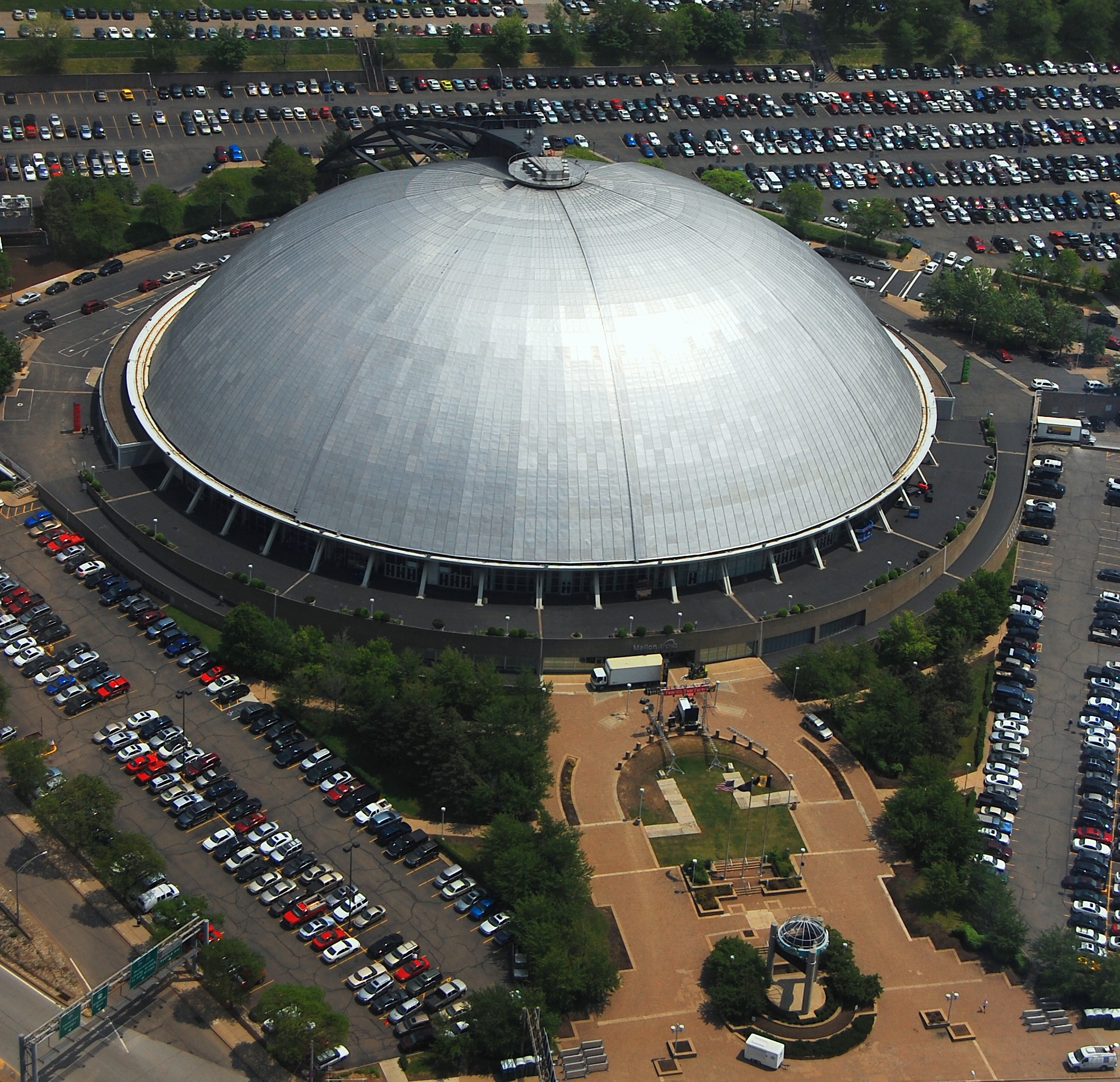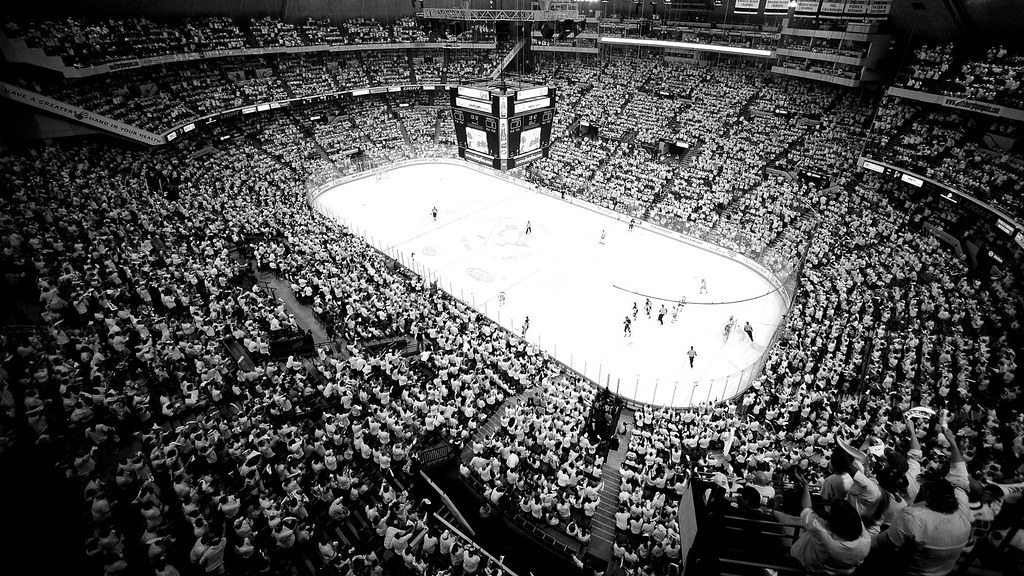But don’t wipe away the evidence; build something special
By David Conrad
Post-Gazette columnist Brian O’Neill finally said out loud what everyone knows is true (“Point of Realism Interferes with Preserving Arena,” Feb. 8): Whatever replaces the Civic Arena, in the end, must serve the needs and growth of the Hill District as much as it serves the Penguins’ bottom line.
A wound needs to be healed. A wrong needs to be righted. Seems like a no-brainer. But it’s not so easy.
The Penguins have legal development rights to the property. They can do almost whatever they want with it. They should not. They should show enormous forbearance, unprecedented in the history of corporate America, and agree to a cooperative master plan. One that still makes them money, but one in which they let other architects, the Hill community and local leaders have actual design power.
Yes, I am saying that a company with the legal right to develop property should relinquish substantial control. Call me a socialist, or a libertarian, or a whatever.
The Civic Arena was built by legal means. The group that tore down the Lower Hill was legally entitled to do so. The development was called a triumph. But it was a crime.
Big news: Just because something’s legal doesn’t mean it’s right. Just because you have legal rights to something doesn’t always mean you have no one to answer to when you want to chuck it. Especially when that something is a monument.
Yes, the arena is an important symbol, an historically crucial object. Because it’s a modernist masterpiece? I’m no architect, but I’d have to say, “No.”
It’s important because it’s evidence in a crime scene. It’s a weapon left on a battlefield. And this sword should be made into a plough share.
We should never forget what happened on those 28 acres. A strong, nationally known working-class neighborhood was wiped away. A neighborhood that gave Pittsburgh and America a symphony of cultural giants — musicians, actors, merchants, sports heroes and civic leaders — was chopped off at the knees.
The Hill gave generations of immigrants a foothold in this country, it gave them their first home and it gave them a voice — quite literally with the Pittsburgh Courier, which was to the African-American population The New York Times of its day.
The Hill. August Wilson’s crucible for the greatest play cycle in American literature. The home of the Crawfords, the fiercest baseball team that ever graced a diamond.
Pittsburgh’s Hill District. In a city whose racism went quietly unpublished but which could be as brutal as Selma’s, the Hill was a beacon to black communities nationwide. And then it was a parking lot. And a place to see the Beach Boys
As they say in the vernacular, we gotta own that.
Building another Waterfront or South Side Works, surrounded by parking lots that block off the Hill, again, is not gonna do that.
Building “safe” evening entertainment for suburban sports fans is not gonna do that.
What greater Pittsburgh, as a whole, needs to own up to and answer to is our responsibility for the future of the Hill.
The Lower Hill development will for better or worse remake the face of the city for the next 50 years. There’s no larger, more central piece of property left to dream on. And that’s what should happen. What is built there shouldn’t just make a dime, it should make everyone, black and white, drop their jaws.
Pittsburgh, hard-bitten and practical though it seems, is a magical place. It’s weird and warped and beautiful and it makes you want to fight for it. The number of men I’ve seen cry openly as they told me how they wished they could move back here I can’t count.
Right now, we’re just starting to stanch the population loss, we’re getting people to love it here, we’re riding a national obsession with “authenticity,” we’re the heart of Steeler Nation, we keep getting called the “most livable city,” and we might be the only place in America were Republicans and Democrats could actually find some middle ground.
The city’s at a turning point. Pittsburgh’s poised to make it. And we are about to run smack into the greatest financial crisis in the city’s history. What to do?
Break the law. Yes, you heard me. Declare, as a group, that “we” the people of Pittsburgh “own” what happens here.
I’m not saying storm the offices of Oxford Development Company and the Penguins, but ask for a smarter plan. Ask that your leaders, your politicians, your sports heroes and your foundations stop shrugging their shoulders. It’s not so simple as “it’s up to the Pens” or “we just gotta get something built.”
No. That thinking gave us two empty department stores, 400 lofts no one lives in and a subway to nowhere. We’re better than that.
Make them step up. Three major foundations bought the site of the former Hazelwood coke plant to avoid exactly what’s being designed for the Hill — a soft outdoor mall town that would be the modern equivalent of what the arena was 50 years ago: a crime.
Why doesn’t the Hill get the same equity? The same skin in the game?
Pittsburgh and the Hill deserve a better shake. A deeper process. One that, in the end, will create something that not only makes everyone involved more money than a series of movie theaters and cheesecake factories walled in by parking garages but that also will be a thing of beauty and strength that ties the Hill back into the life of the city it was meant to be a part of. A thing that people all over the country will travel to see.
If getting a court injunction to save some of the Civic Arena serves that purpose by starting the process, then I’m all for it.
I’m not saying the Penguins could never build something great on their own. I’m just saying they probably won’t and, in some sense, it isn’t their responsibility. It’s ours.
They aren’t tearing down the arena for the benefit of the Hill; they’re tearing it down to make money, which is their job — aside from winning hockey games.
In most situations, I’d say, go to it. If the Hill District Community Development Corp. owned the arena and wanted to tear it down, I’d say, it’s all yours.
But who wins when you cut off your nose to spite your face? What monument does vengeance leave for our children to play in?
The circumstances are strange here.
In Pittsburgh? Go figure.
David Conrad, an actor who starred in the CBS television series “Ghost Whisperer,” grew up in Swissvale and now lives in Braddock.
*First photo courtesy of Scott Michaels
**Third photo courtesy of Kyle Kebert
***This was an opinion column that ran in the Pittsburgh Post-Gazette.




No comments:
Post a Comment